SingaporeMotherhood | Parenting
June 2021
Top 10 Immune System-boosting Foods for your Child

While you and the grandparents are probably vaccinated against COVID-19, your children may not be. Apart from taking the usual measures to stay safe, such as masking up, and staying home, one way to help your young ones be well is to improve their immune system.
For babies, breastmilk will do the job, says Caleb Mok. For older children, foods that they eat can help, the representative dietician of PanAsia Surgery shares: “Good nutrition contributes to a child’s healthy development. Good nutritional status through the foods that children eat will help them to ward off infections, reduce the severity and duration of infections, and shorten the number of sick days.”
Feed your little ones well, and right, with these foods that Caleb recommends.
(See also: 4 Easy Recipes to Boost your Immune System)
Top 10 foods to help improve your child’s immune system
Citrus fruits
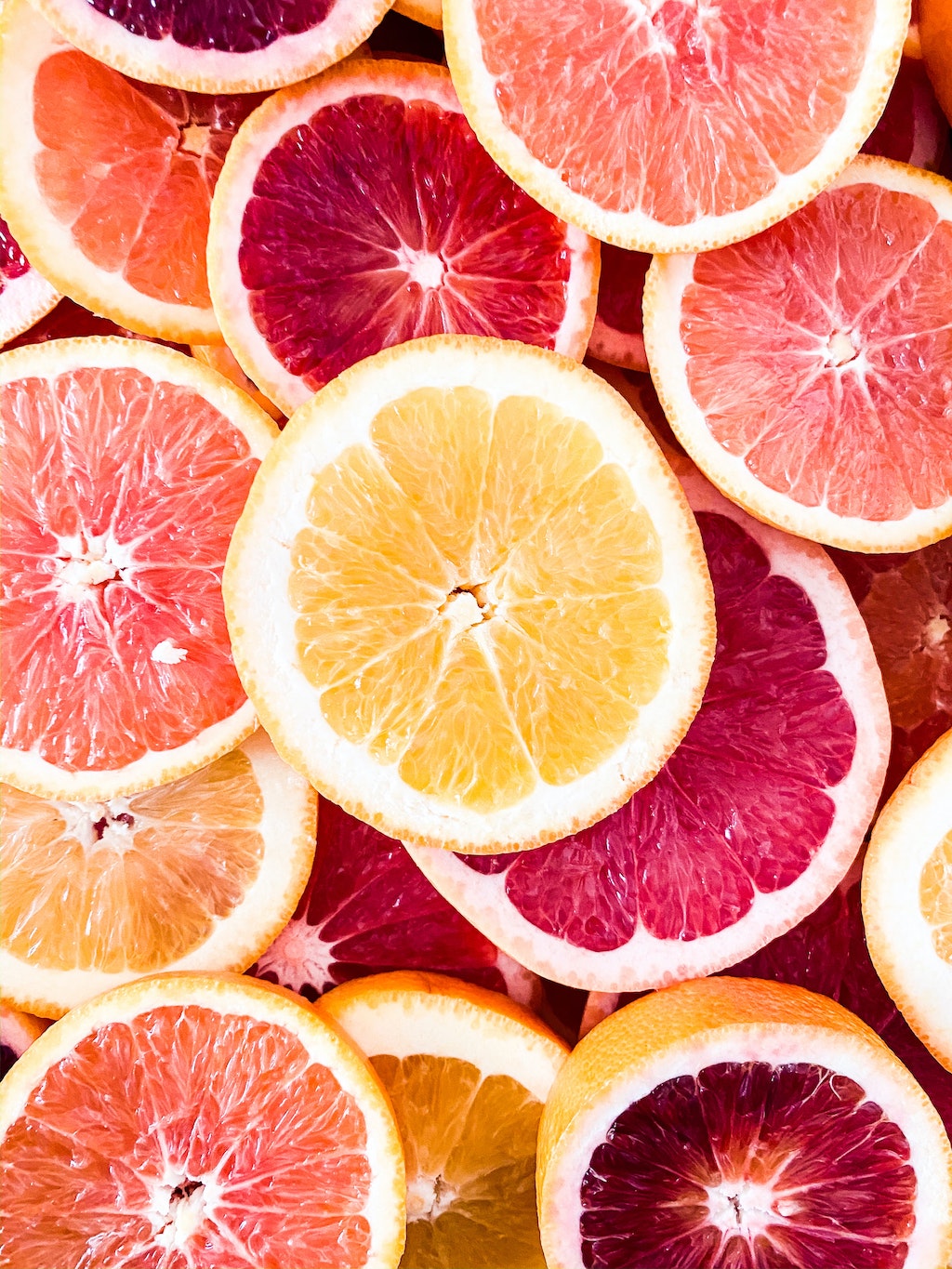
Citrus fruits like oranges, limes, lemons, pomelos are loaded with vitamin C. This is an important antioxidant that offers beneficial effects on all parts of the immune system.
Brightly-coloured vegetables
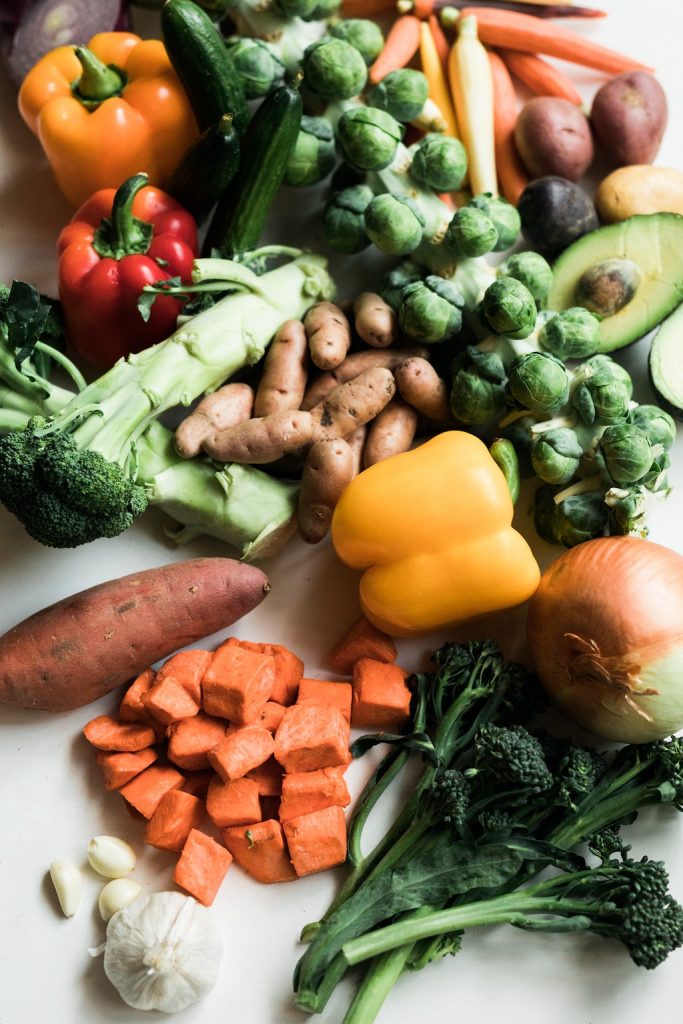
Brightly-coloured vegetables add colour, flavour, and crunch to our meals. In addition, they are packed with phytochemicals, vitamins, and minerals that support strong immunity.
Red and orange vegetables and fruits like red capsicums, papayas, carrots, sweet potatoes, and tomatoes are rich in vitamin A.
Green leafy vegetables like spinach, bak choy, broccoli, kai lan, kale, choy sum are excellent sources of vitamin C, iron, folate, fibre, calcium.
Berries are also good for the immune system
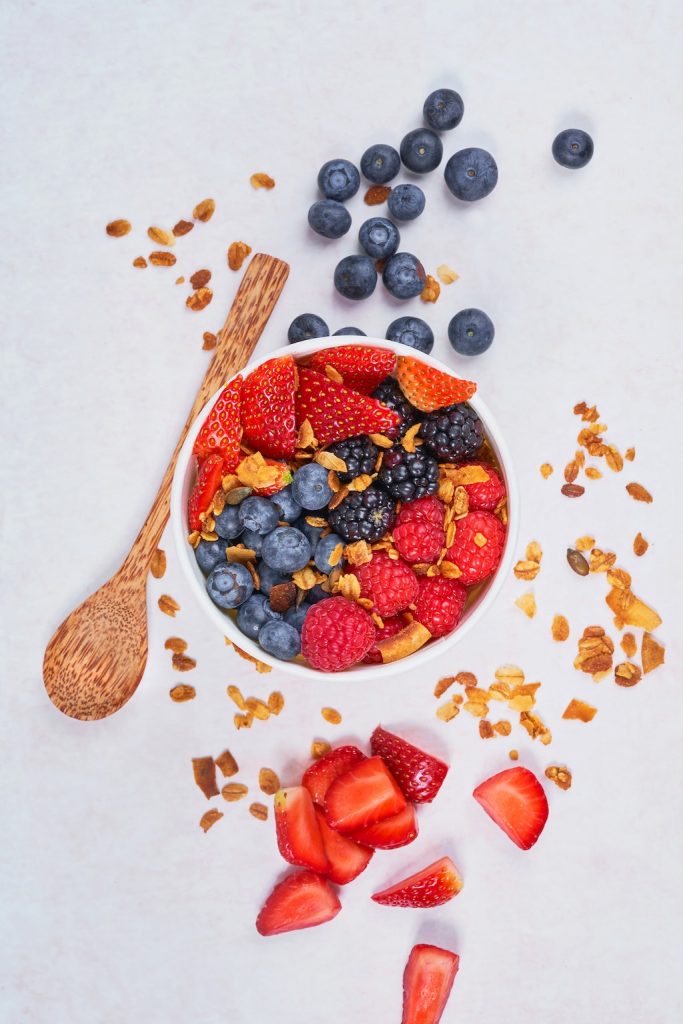
Berries like blueberries, elderberries, strawberries, mulberries, and raspberries are good immunity-boosting foods. They have high concentrations antioxidants and offer immune support. In addition, some berries are rich in vitamin C. The phytochemicals (plant compounds) in elderberries are especially active in killing flu-causing viruses.
Garlic
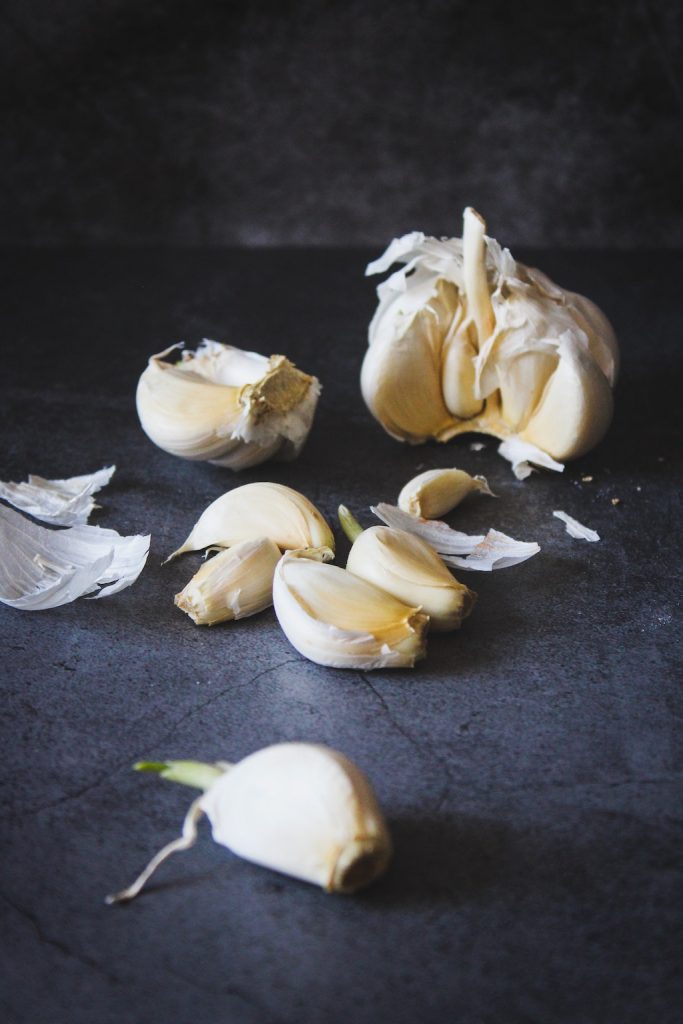
Garlic is rich in an immunity-boosting phytochemical known as allicin. Allicin, together with the other compounds in garlic, has been shown to have potent antiviral and antimicrobial properties.
(See also: ‘Cooling’ Soups and Drinks to Soothe that Sore Throat)
Mushrooms
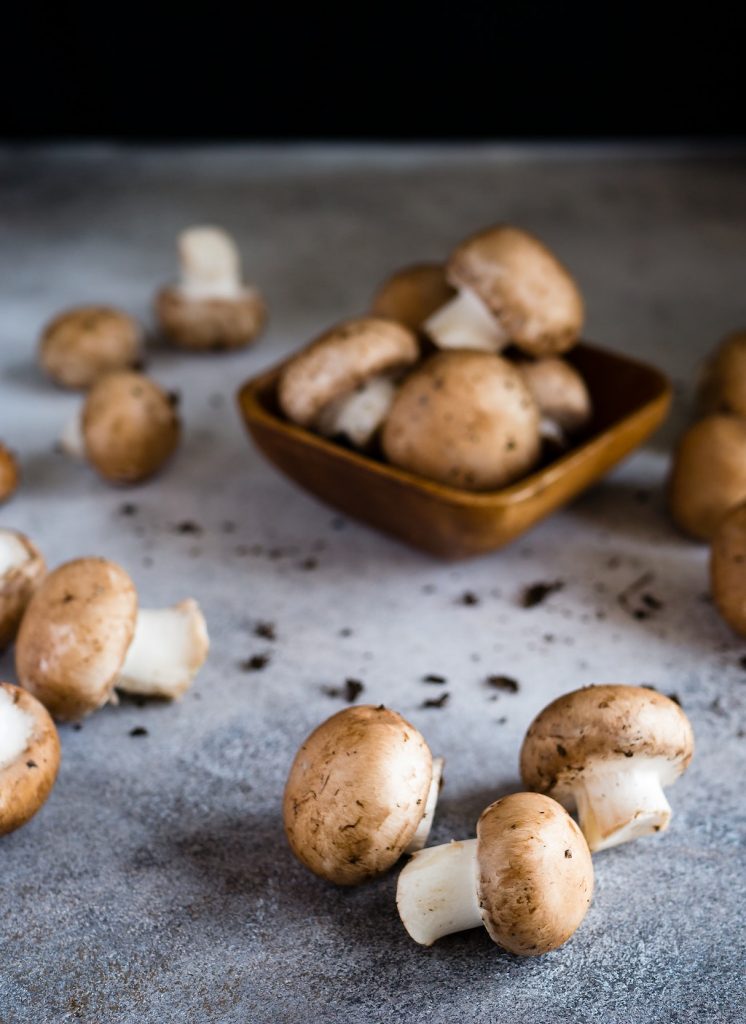
Mushrooms have a group of soluble fibre known as beta-glucans, which contribute to gut health by serving as prebiotics (food for probiotics) in the gut. But what’s more interesting about beta-glucans is that they can penetrate the gut barrier and sit on specific receptors of the immune cells in the inner surface of the intestine. This activates the growth and communication of the immune cells, boosting immunity.
Microalgae: a new kind of food for the immune system
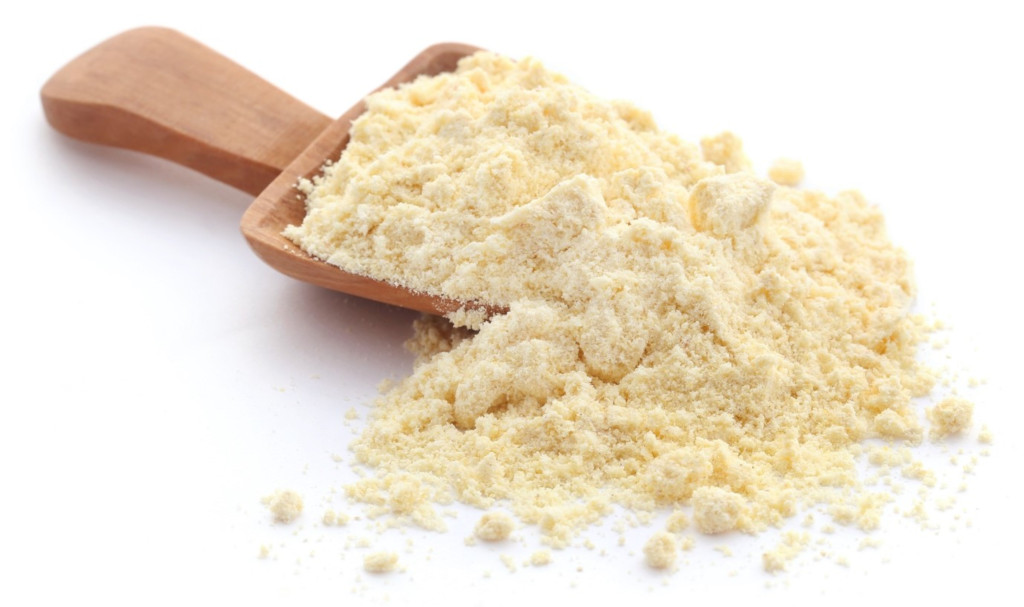
Microalgae are tiny algae that are invisible to the naked eye. They can be found in some fortified foods, cereal drinks, as powder to be added into foods, and even as dietary supplements. Rich in vitamins, minerals, amino acids, carotenoids, fatty acids and other nutrients, microalgae can help boost the nutritional status and immunity of both young and old.
Probiotic foods
70 to 80% of our immune cells are found in the gut, hence a healthy population and balance of gut microbiomes can ensure a strong immune system. What helps? Probiotic foods like yogurt, kefir, sourdough, tempeh — are all safe for children to consume. Try yogurt topped with berries, nuts and seeds. Studies have shown that probiotics may reduce flu-like symptoms, as well as their duration.
(See also: The Power of Probiotics for Kids)
Eggs

Eggs have a lot of components that strengthen immunity. Firstly, they have a whopping biological value of protein. Secondly, they provide vitamin D, another crucial nutrient for healthy immunity. Additionally, they contain vitamins A and E, choline, zinc, iron, and many other nutrients. Eggs are also inexpensive, versatile, easy to cook, and delicious!
Poultry
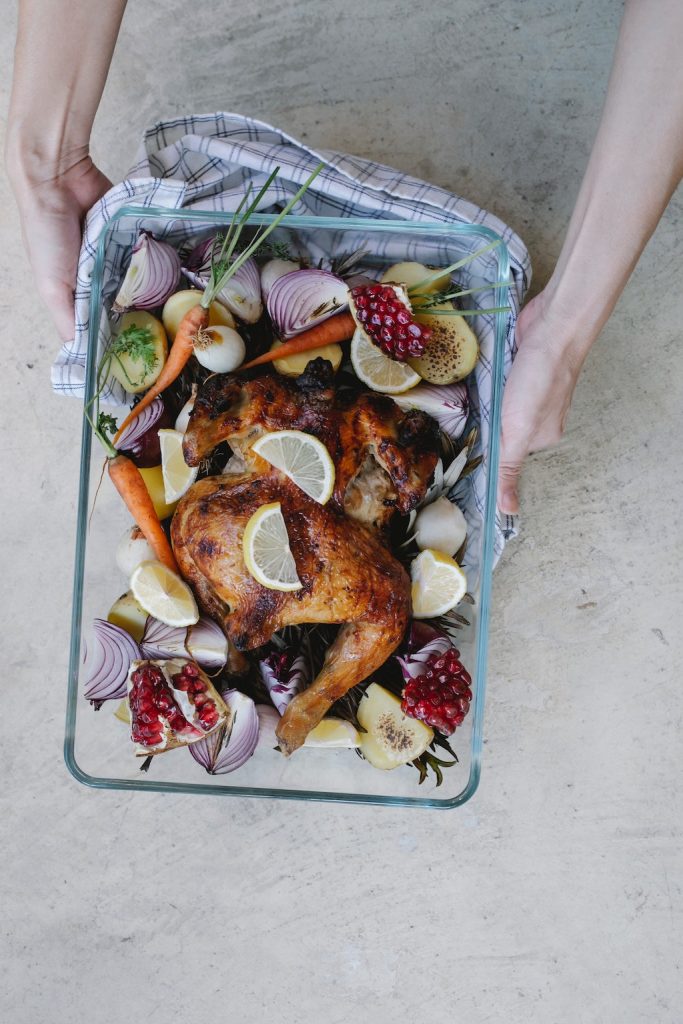
Poultry, such as chicken and turkey, is a superb source of protein. It offers valuable nutrients like zinc, selenium, iron, and B vitamins that enhance immunity. Chicken soup may soothe inflammation and cold symptoms too, aiding in recovery.
Nuts and seeds
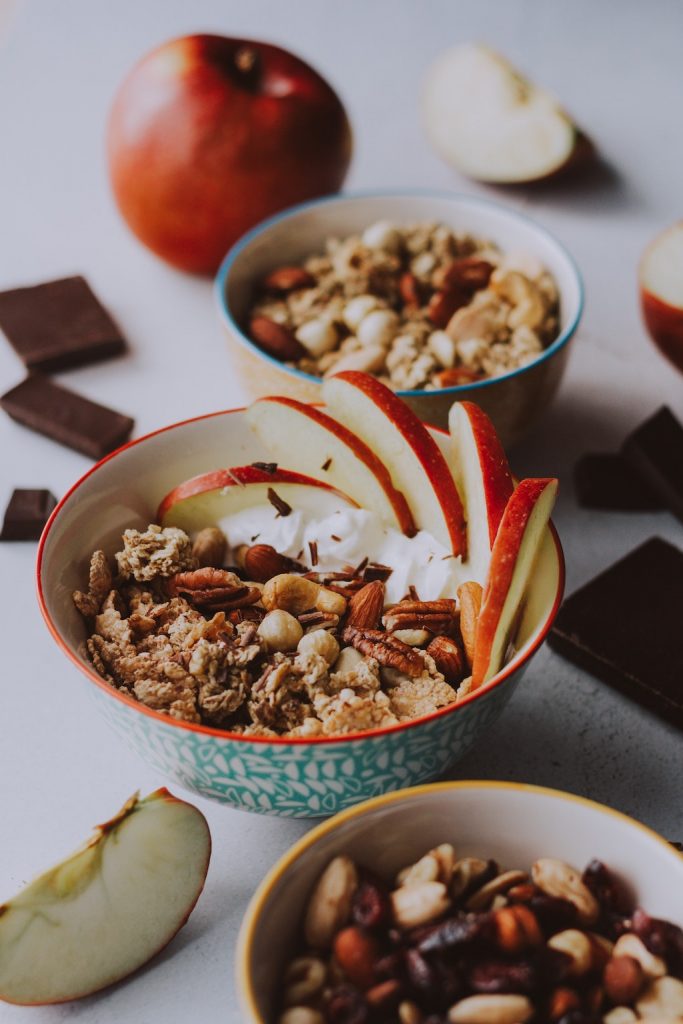
Nuts and seeds are rich in healthy fats, B vitamins, protein, and other nutrients. Nuts like almonds, pistachio nuts, walnuts, are high in vitamin E, a powerful fat-soluble antioxidant. Vitamin E also regulates and maintains immune functions.
(See also: Where to go for Online Fresh Food Delivery in Singapore)
Eat your way to a stronger immune system
While these 10 foods are great for boosting your child’s immune system and keeping them healthy, Caleb points out that it is crucial to eat a variety of whole natural foods in a well-balanced diet. “This includes adequate carbohydrates preferably from wholegrains, sufficient protein from lean meat, brightly-coloured vegetables and fruits, and healthy fats from those in fatty fishes, nuts and seeds,” he recommends.
What about vitamins and supplements for the immune system?
Ideally, these should come from the variety of foods your child consumes, Caleb says. However you may wish to supplement if your child:
- Is a picky eater
- Has dietary restrictions
- Has aversions due to food allergies and intolerance
- Requires increased nutrient needs due to health and environmental conditions
“To support immunity during a pandemic, parents may consider providing their children with multivitamins and minerals, essential fatty acids, probiotics, vitamin C, according to the dietary habits of the children,” Caleb adds.
Proper supplementation can help to fill in the gaps between diet, nutrient requirements, and health conditions. Do remember to complement nutrition with the other vital elements for good health — lots of water, enough sleep, and (especially for older children) stress management — as well.
Note: Consult a dietician or a relevant healthcare professional for individualised dietary recommendations, as the needs and tolerance of different children may vary.
(See also: Does my Child really need Supplements?)
Featured image: kazuend on Unsplash
All content from this article, including images, cannot be reproduced without credits or written permission from SingaporeMotherhood.
Follow us on Facebook, Instagram, and Telegram for the latest article and promotion updates.





